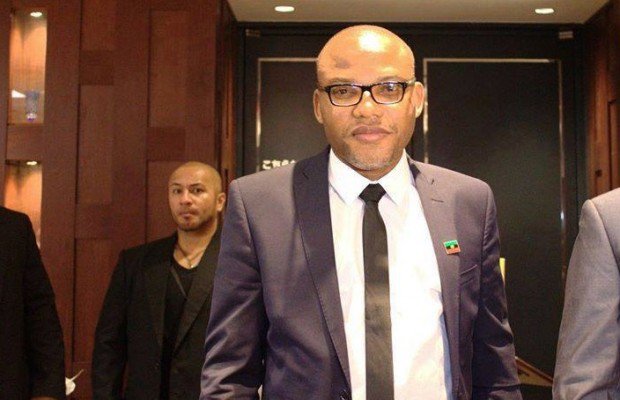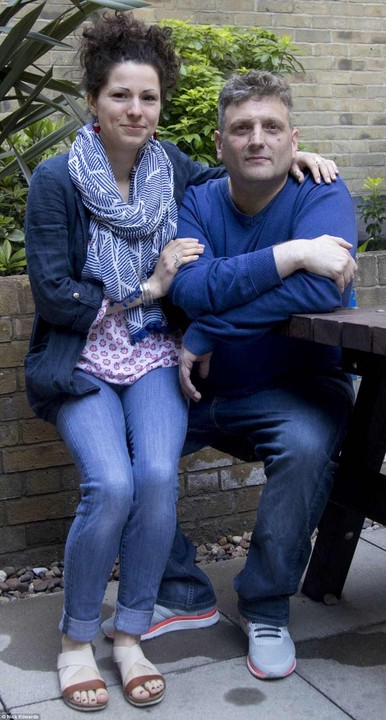National Coordinator of the Oodua Peoples Congress (OPC), Otunba Gani Adams, believes that restructuring is the only thing that can save the nation from disintegration. He also supports the agitation by the Indigenous People of Biafra (IPOB) and calls for the implementation of the recommendations of the 2014 National Conference convened by former President Goodluck Jonathan’s administration. In this interview culled from Saturday Sun, Otunba Adams speaks on various national issues.
Question: What are your thoughts on the situation of things in the nation today?
Otunba Gani Adams: It is a new experience in the history of Nigeria. As a matter of fact, I believe that we have reached the crossroads. Few days ago, the Federal Government released a statement that they cannot pay the salaries of civil servants any more unless they borrow money about $7billion. That kind of thing has never happened in the history of this country. Look at the scenario of President Muhammadu Buhari sending a letter to the National Assembly purporting that the Vice President, Yemi Osibnbajo, that would act for him would be coordinating government affairs in his absence. All these show that we are seeing new developments in Buhari’s government. In the history of this nation, Nigeria has never appointed a retired military officer to be the Comptroller General of the Nigerian Customs. So many things that have never happened before, we have witnessed it within the last two years of Buhari’s administration. Any person that is concerned about the progress of Nigeria should see the situation as worrisome. There is no stability in the economy, there is no consistency in government’s policies and there is so much false information coming from the nation’s seat of power. During the government of the late Head of State, Gen Sani Abacha, a similar scenario played out whereby a lot of falsehood was coming out from the presidency. I believe that this government is even worse than the regime of Abacha in terms of dissemination of information to the public. A situation that Nigerians cannot believe their Information Minister is bad. When the Information Minister says anything now, nobody believes him. It is a very dangerous trend. I think the government should be very careful so that the citizens would not totally lose confidence in the administration.
You have always advocated the need for restructuring; do you think that the situation today has made it more apt for restructuring the country?
Definitely, we are just wasting our time if we do not restructure. The voice of the people is the voice of God. As a people, we do not have any alternative than to restructure the country. The structure we are operating now does not give room for development. Most people who emerge in various positions of authority are not the right people; there are some governors and even Ministers who do not know what to do with the powers that they have. There are people who are not popular even in their streets emerging to occupy various positions in Nigeria. The restructuring of Nigeria would reduce corruption even in institutions in Nigeria. For instance, if the Yoruba control their resources, you cannot be stealing my money and I would leave you. People would question the actions of their representatives. That is not possible now in a situation where you concentrate enormous powers at the centre. As a multi-ethnic nation with a population of about 180 million people and about 250 nationalities, Nigeria cannot move forward that way. A country like Nigeria cannot succeed with a unitary form of government. We claim to be operating a federal system of government but it is only on paper. We have to go back to the basis and the way we got independence from our colonial masters. We deviated from that in 1966 and Nigeria fell into a civil war and after the war, we managed the situation for some time.
The military started creating states arbitrarily from 12 states to when Nigeria was split into 36 states and the Federal Capital Territory (FCT). The creation of states was politicised and they did not factor in the issues of balancing the arrangement to suit the interests of the various interests in the country. You can imagine a populated state like Lagos having only 20 local governments whereas a state with half of the population has double number of local governments. Definitely such an arrangement cannot stand; if Nigeria is not restructured to regionalism, that would be too bad. Even with the state structure, they are not even given the powers to develop at their own pace. Let us go back to the geo-political zone; it is either we call it regions or zones so that they can be allowed to develop at their own pace. Such an arrangement would bring back the competitive spirit that existed among the defunct East, West and North regions then.
Why are we wasting our time with this arrangement? It is only when the country is restructured that we could have serious governance in the country. Tell me, what is the Federal Government doing with water resources, electricity, police, environment, etc. The job of the Federal Government should be to maintain our territorial integrity and international relations with regards to the nation’s foreign policies. The job of the Federal Government should be minimal. I believe that President Muhammadu Buhari’s health became worse because he has a lot of things to attend to and his age is not helping matters. It is not easy for a man of 74 years to administer Nigeria. The type of pressure on the old man would not even allow him to attend to his health. Even if he were to be a young man, a situation where you have about 40 ministries with barely equal number of parastatals, to lead Nigeria would not be easy.
We borrowed this presidential system of government in 1979 from the United States of America but look at the way and manner they have conducted their own system there. In America, they practise true federalism and every state is allowed to develop at her own pace. Every state has her own Court of Appeal and even Supreme Court but in Nigeria, there are some states that do not even have Court of Appeal and not to talk of the Supreme Court. That is why we have litigations everywhere. All manner of cases go to the Supreme Court and with the structure in Nigeria, how do you expect the people to get justice? So, anybody who says that Nigeria should not be restructured is an enemy to this country. This system cannot continue.
And when you are talking of restructuring, it has to be total in the manner we inherited it from the colonial masters. If I may advise, we should go back to the Republic Constitution of 1963. If that is allowed and supported with the recommendations of the 2014 National Conference, it would totally solve the problem of this country. Most of the regions would look for a way to pay the salaries of their workers. Those working at the federal level would be minimal unlike the situation now where you have a bloated workforce in the country. If the country is restructured, some of the federal civil servants would come to the region to work. The region should be able to develop their resources and then pay taxes to the Federal Government. So, the issue of not having money by the Federal Government would be a thing of the past.
Not quite long ago, Pa Ayo Adebanjo said that the Yoruba youth are already gearing up for the Oduduwa Republic but are only being prevailed upon to mellow down by the elders of the ethnic region. As the National Coordinator of the Oodua Peoples Congress (OPC) which is made up of mainly youths, how true is that?
I am not a youth because a youth should be less than 40 years. However, about 60 per cent of my followers are youths. People still look at me from the perspective of how I was when I started but now, I am becoming more mature. I am like a big father now. But I totally agree with Pa Adebanjo. If you sample the opinion of the youths and others in Yoruba land, they are even tired of restructuring. They are more in support of self-determination. They want self-determination on the basis of having their own nation. It is something that is very clear to everybody. The situation is worrisome because in Nigeria, some people say let us try and solve the problem but others say the problem must continue because they are benefitting from the system. In our experience at the National Conference, the various interests did not want to follow the same path. People from a particular region believe that we should continue to be patching up Nigeria unlike others who wanted a permanent solution to our problems. When you tell them that this is what happened in other countries including the United States and Britain, they would tell you that we should continue with the present structure. So, with the way things are going, the youth who want to have a better society have the rights to clamour for self-determination. I agree with Pa Adebanjo that Yoruba youths are clamouring for self-determination. Even some of us that are leaders of the youths, we have to calm them that if you are asking for a nation, we do not think that it would come in the spirit of peace and that we do not want war. What we are saying is that later we can become a nation but now, let us go with restructuring.
But inasmuch as we are talking to our youths, I would be the last person that would ask the Igbo people to stop the agitation for the Republic of Biafra. It is their right for self-determination. Look at the population of the Igbo people now and they are the most vibrant and widely travelled Nigerians. When people are saying that they would crush the Igbo people the way they crushed them in 1967, I always laugh at them. The people you have now are not the Igbo of 1967 to 1970. We have a new Igbo society that is more organised and sophisticated.
I was one of those that supported the release of the leader of the Indigenous People of Biafra (IPOB), Nnamdi Kanu. The crackdown on IPOB would not help matters because if they are determined for liberation, you cannot stop them no matter the force you use against them. So, I believe that the only way to resolves all these agitations is to go back to the Republican Constitution of 1963.






